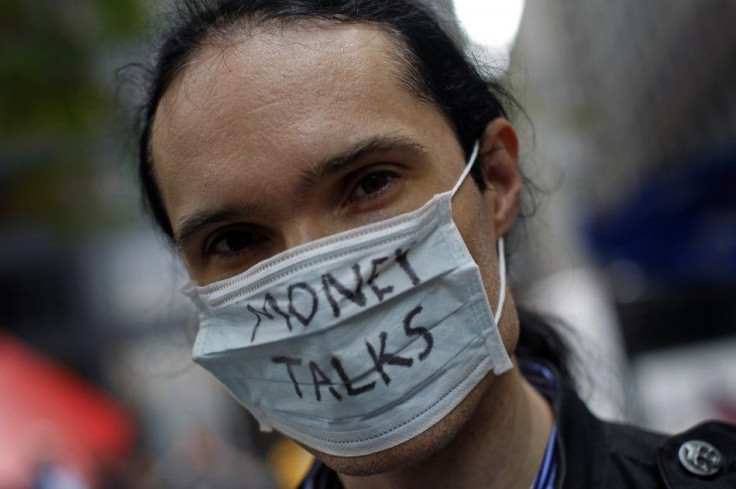Occupy Seattle Enters Fifth Day in Westlake Park, Ignoring Police Ultimatum

As Occupy Seattle finished its fourth day on Tuesday, the city's police threatened protesters with arrest if they did not take down the tents they have set up in Westlake Park.
The issue is the tents, Police Chief John Diaz told KING-TV, a local television station. This is a city that appreciates that people want to protest. The issue is that other people need to have the right to use the park also.
But as of early Wednesday morning, the threat had not been carried out, and about 100 protesters remained in tents in the park.
We called people to defend the occupation, but the cops never showed up, one protester, Liam Wright, 24, told The Seattle Times.
Occupy Seattle is one of a growing number of connected protests that are taking place in cities across the country. The movement started more than two weeks ago in New York City, and since then, it has spread not only to Seattle but also to Los Angeles, Boston, St. Louis and other cities.
A Leaderless Movement, So Far
Like their counterparts in other cities, the Seattle protesters emphasize that their group is leaderless. They do not want to -- as Heather Gautney, a sociology professor at Fordham University in Manhattan, told The International Business Times -- recreate authoritarian structures.
But there is, inevitably, a structure to the movement. There is no designated leader or hierarchy, but tasks are formally delegated, with different people responsible for fundraising, media relations, safety and the like. All decisions are made by collective vote.
Interestingly, the mayor of Seattle, Michael McGinn, actually expressed support for the protesters' aims, if not their tactics.
I support the efforts of the protesters at Westlake Park to address this country's economic situation, McGinn, a Democrat, said in a statement. We have not seen income inequality this great since 1928, the year before the Great Depression started. The top 1 percent control 34 percent of the nation's wealth. The top 10 percent control two-thirds of the nation's wealth. It is an unprecedented grab by the most powerful to get a bigger piece of a shrinking pie.
But, he continued, pitching tents in a public park has the effect of displacing others who have a right to be here.
The police response to the Occupy groups has varied from city to city. In New York, the police seem to have settled into an unspoken routine of allowing the protesters to occupy Zuccotti Park in Lower Manhattan, but arresting them when they cause disturbances outside of the park. For instance, several hundred people were arrested on Saturday for blocking traffic on the Brooklyn Bridge.
I do not get a sense that they are nervous about what's going on or concerned. It is contained. They are charged with containing what's going on in the park, Gautney told IBTimes. When the numbers become larger, if they become larger, that tactic is not going to work, so that remains to be seen.
Gautney added that it can be counter-productive for the police to confront peaceful protesters.
I think that just radicalizes people. Having those radical situations actually draws people in, she said. So the police are a factor, but I don't think they'll have the ability to break it up entirely.
© Copyright IBTimes 2024. All rights reserved.





















